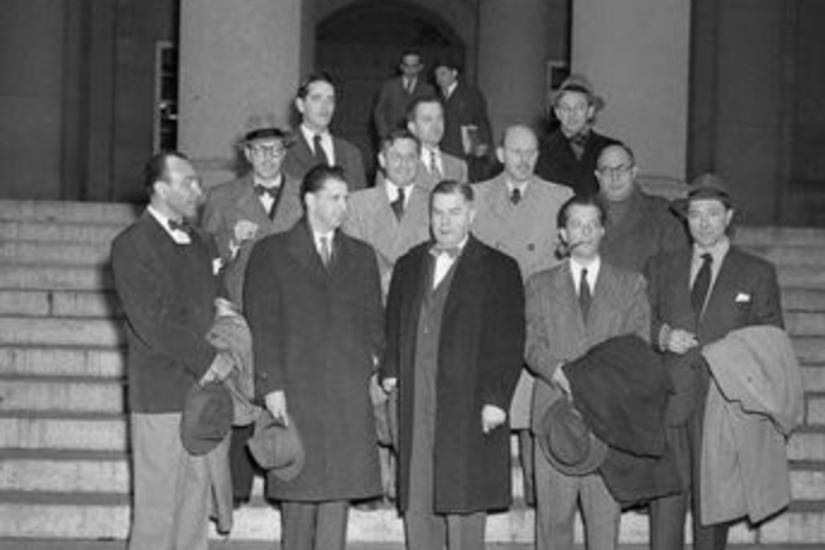“Are you now or have you ever been a member of the Communist Party?” Members of the House Committee on Un-American Activities raised this question with unrelenting zeal in a series of hearings over nine blustery and widely publicized days in October 1947. Spotlights flooded the hall and there was a row of cameramen perched at one side of the room, prompting an unnamed reporter from one of the movie industry trade papers to pronounce the atmosphere “worse than a Hollywood premiere.” Ten “unfriendly” witnesses, who refused to cooperate and skirted the issue of party membership—the Hollywood Ten, as they came to be known—were convicted of contempt and forced to serve jail time.
The basic plotlines of this story, the naming of names and the attendant recriminations, are by now well known. They’ve been recounted repeatedly in partisan memoirs and competing historical accounts. But just as the movies that were made during the war would be interpreted differently soon after it, so too the positions of many of the players involved in the HUAC proceedings changed over time, complicating the dominant narrative of good versus evil and challenging our assumptions about the period. Each player made by turns virtuous and dubious decisions, but what’s perhaps more interesting than the choices themselves is the climate in which they were made and the period-specific rhetoric employed to express them.
Film scholar Thomas Doherty opens his deeply absorbing, expertly researched, and thoroughly entertaining Show Trial: Hollywood, HUAC, and the Birth of the Blacklist by observing how, on the wings of these famous and infamous hearings, the Cold War came to Hollywood. Writer Lillian Hellman branded the whole affair “a honky tonk show.” The nattily dressed Committee chairman, New Jersey Republican J. Parnell Thomas, called the October hearings “the best show the committee has yet had.” And a clear-eyed editor from The Hollywood Reporter asked “how easier can the personnel of that committee get their names in print than by an attempted shakedown of motion pictures and their personalities?”
